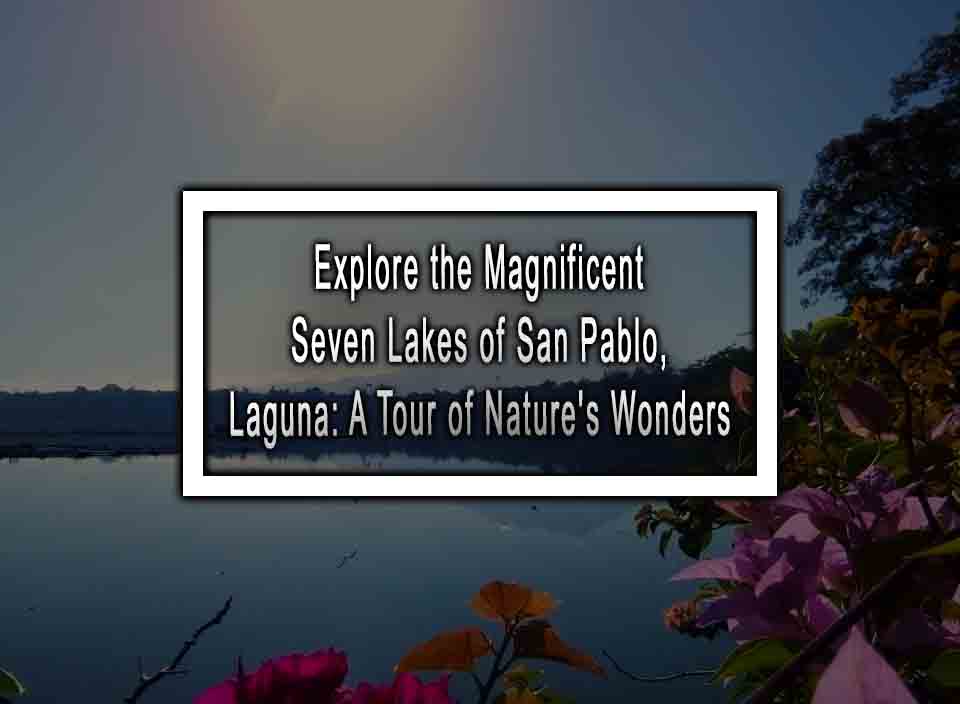Dive into the Wonders: A Splashing Journey Through Seven Lakes of San Pablo, Laguna
Imagine a place where water weaves the landscape into a breathtaking tapestry of natural beauty. Yes, we’re talking about the enchanting city of San Pablo, Laguna, nestled in the lush heart of the Philippines. Known for its seven stunning lakes, San Pablo has long charmed locals and travelers alike. Each of these liquid jewels has a story to tell and a unique charm that beckons exploration. Eco-tourists, culture enthusiasts, or anyone itching for a serene escape, this is your playground! In our latest adventure guide, we’ll immerse you in the captivating allure of San Pablo’s seven lakes. Buckle up as we set sail to uncover these hidden aqua gems!
1. Sampaloc Lake
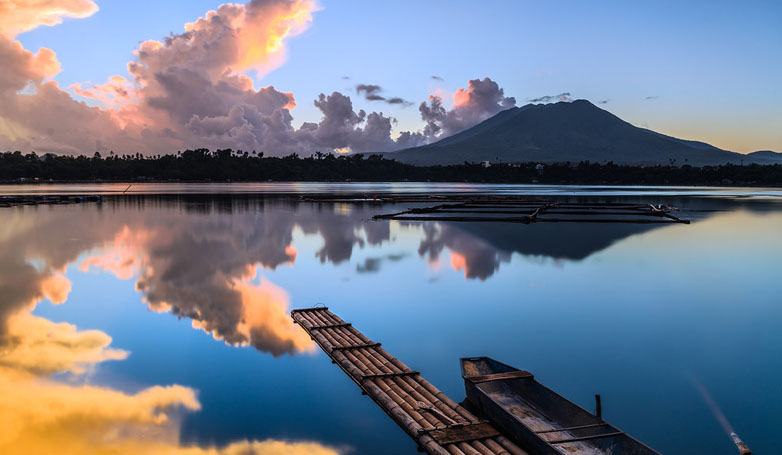
Sampaloc Lake, the largest and most renowned of the Seven Lakes of San Pablo, is a picturesque caldera located in San Pablo City, Laguna, Philippines. This freshwater lake is situated right in the heart of the city and is famous for its stunning views and tranquil atmosphere. It has a backdrop of lush greenery and the occasional view of Mt. Cristobal and Mt. Banahaw, making it an excellent spot for photography and leisure activities such as picnicking, jogging, and fishing. The lake is surrounded by a road where visitors can walk around and appreciate the natural beauty. Local folklore and legends add a mystical charm to Sampaloc Lake, making it a must-visit destination for tourists.
Trivia
- Sampaloc Lake is a volcanic crater that was formed through tectonic movements.
- It spans approximately 104 hectares, making it the largest of the Seven Lakes of San Pablo.
- The lake is named after the Filipino word for the tamarind fruit, “sampalok,” due to the abundance of tamarind trees around the area during its earlier days.
2. Yambo Lake
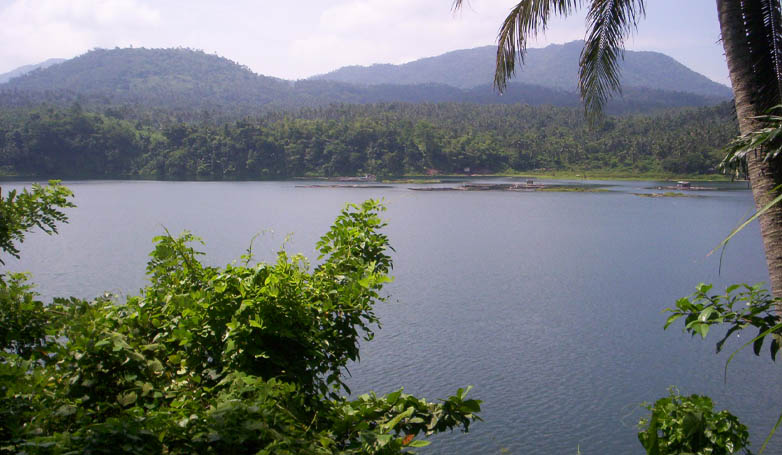
Yambo Lake, one of the Seven Lakes of San Pablo located in Laguna, Philippines, is a fascinating volcanic crater lake that offers breathtaking views and a peaceful atmosphere. Its tranquil waters reflect the surrounding greenery and skies, making it a perfect destination for nature lovers and photographers. Unlike its more commercialized counterparts, Yambo Lake retains a serene and untouched charm due to its less accessible location. Visitors looking for a quiet retreat will find this lake an ideal spot for contemplation and relaxation amidst nature’s beauty.
Trivia
- Yambo Lake has a depth of approximately 80 meters, which makes it one of the deepest of the Seven Lakes of San Pablo.
- The lake has a slightly acidic pH level due to its volcanic soil, which affects the types of organisms that can thrive in its waters.
- Unlike some of the other Seven Lakes of San Pablo, Yambo does not have any major inflowing rivers but instead relies on rainfall and groundwater for replenishment.
3. Pandin Lake
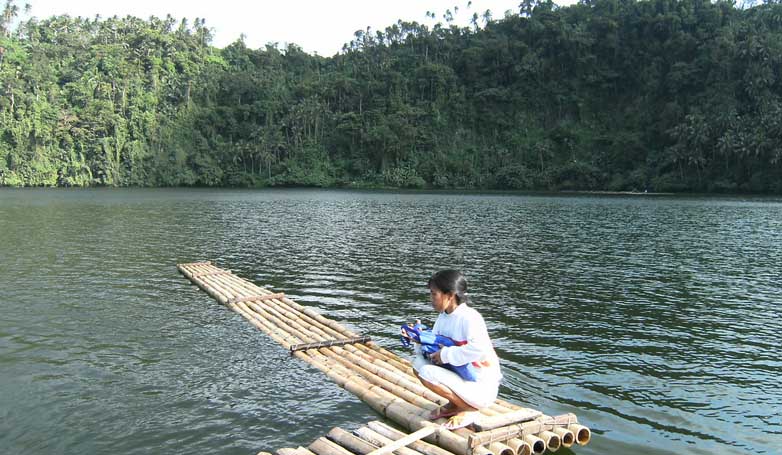
Pandin Lake is an enchanting freshwater body found in the Philippines, within the city of San Pablo, Laguna. It is one of the Seven Lakes of San Pablo, known for its pristine waters and stunning natural scenery. Surrounded by lush greenery and the dramatic slopes of nearby mountains, Pandin Lake provides a peaceful retreat from the bustle of modern life. Travelers flock here to enjoy a tranquil bamboo raft ride, take a dip in its refreshing waters, or simply unwind along its banks. The lake is also a habitat for a variety of fish and local plant species, contributing to its rich biodiversity and yielding an idyllic environment for both nature enthusiasts and casual visitors.
Trivia
- Pandin Lake spans about 20.5 hectares and has an average depth of about 63 meters, making it one of the deepest among the Seven Lakes of San Pablo.
- Pandin Lake’s twin, Yambo Lake, is often referred to as its “twin sister,” and together they are known as twin crater lakes, though Yambo is not as easily accessible as Pandin.
- An interesting fact about the Pandin Lake community is the predominance of female rafters, known locally as “bangkera,” who expertly navigate the bamboo rafts used for touring the lake.
4. Palakpakin Lake
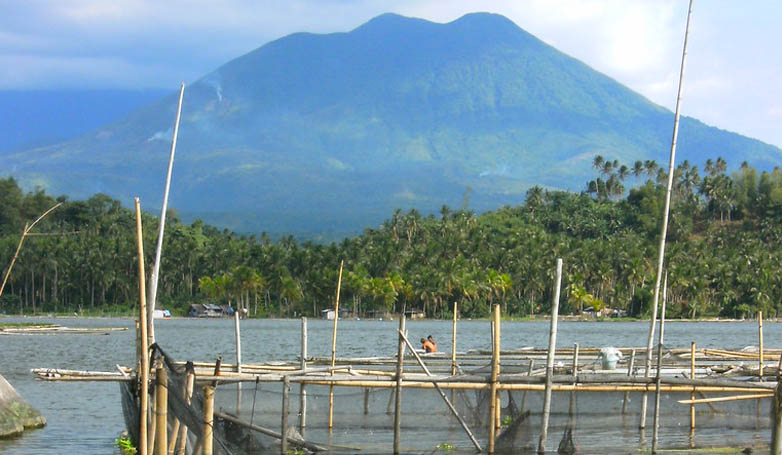
Palakpakin Lake, one of the notable Seven Lakes of San Pablo in the Philippines, is a serene and picturesque freshwater body renowned for its natural beauty and tranquil atmosphere. Nestled amid lush greenery in the province of Laguna, Palakpakin Lake offers a respite from bustling urban life with its calming waters and diverse ecosystem that supports local fauna. Anglers and nature enthusiasts frequently visit this idyllic spot, as it provides ample opportunity for fishing and bird-watching. The lake’s accessibility to tourists and its important role in the local culture and economy make it a treasured landmark within the Seven Lakes system.
Trivia
- Palakpakin Lake is one of the smaller lakes in the Seven Lakes of San Pablo system.
- It is a shallow lake known for its warm waters, which are believed to have healing properties.
- The lake is occasionally used for local festivals and events, which include boat racing and community fishing competitions that highlight the significance of Palakpakin in maintaining regional traditions.
5. Mohicap Lake
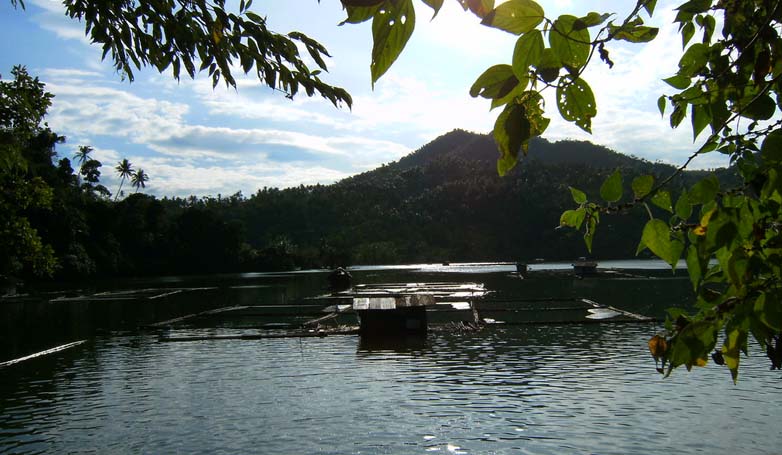
Mohicap Lake is a serene body of freshwater nestled among the famed Seven Lakes of San Pablo in Laguna, Philippines. Known for its placid waters and lush green surroundings, it offers a tranquil escape from the hustle and bustle of urban life. Mohicap is a popular spot for local fishermen and is surrounded by rolling hills and verdant landscapes, enriching the area’s stunning natural beauty.
Trivia
- Despite its relatively small size, Mohicap Lake offers opportunities for paddle boating and kayaking.
- It is nestled at an elevation slightly higher than the town of San Pablo, providing it with a cooler climate.
- Migratory birds use the lake as a stopover during their long flights, making it an important ecological waypoint.
6. Bunot Lake
Bunot Lake is one of the enchanting Seven Lakes of San Pablo located in the province of Laguna, Philippines. This serene body of water is a popular spot for picnics and immersive nature experiences. Distinguished by its peaceful atmosphere and lush vegetation, Bunot Lake is ideal for those seeking a tranquil escape from the hustle and bustle of urban life. The lake is surrounded by local vegetation and offers opportunities for fishing, as it is a source of tilapia and other freshwater fish.
Trivia
- The lake has a surface area of approximately 30.5 hectares.
- Bunot Lake is easily accessible by road, situated about 4.5 kilometers from San Pablo City proper.
- It serves as an important watershed area, supplying water for both domestic use and irrigation.
7. Calibato Lake
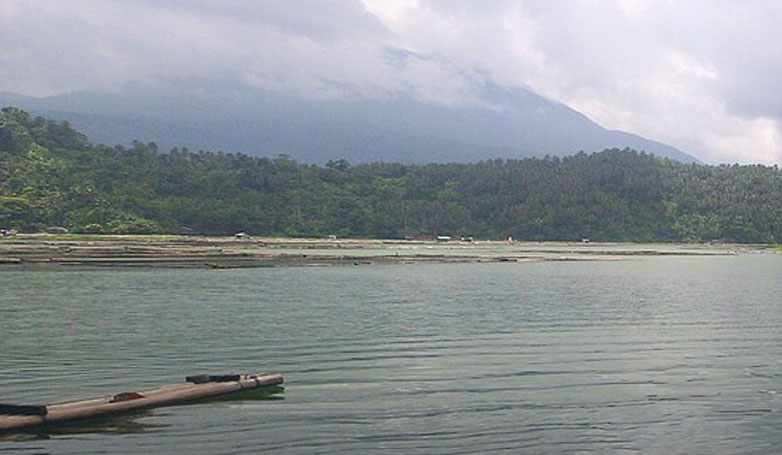
Nestled in San Pablo City, Laguna, Calibato Lake is a tranquil freshwater crater lake within the Seven Lakes of San Pablo. Its untouched beauty contrasts with the developed areas nearby, offering an inclusive sanctuary for diverse fish and flora. An ideal retreat for those yearning for calm, Calibato Lake provides peaceful fishing spots and picnic zones. Among the secrets of this region, it remains a serene destination, akin to the Undiscovered Islands in the Philippines, waiting for more explorers to appreciate its pristine environment.
Trivia
- Calibato Lake is thought to be the deepest among the Seven Lakes of San Pablo.
- The lake’s perimeter measures about 3.8 kilometers, making it ideal for leisurely hikes.
- The lake’s name is derived from the local words “calibato,” meaning “stone,” and “ato,” which refers to a gathering place, highlighting the area’s historical significance as a community meeting spot.
Your ‘Lake’ List Complete: Memories Made in San Pablo, Laguna!
With the serene beauty and rich experiences, each of these Seven Lakes of Laguna has to offer, your adventure checklist is now bursting with ‘must-visits‘. Whether you’re a lone wolf seeking solitude or a social butterfly buzzing for the next group trip, Laguna’s lakes promise memories as deep and enchanting as their waters. Pack your bags, set your out-of-office reply, and get ready to create ripples of joy in the calming embrace of these natural marvels. Adventure is calling, and it’s echoing across the Seven Lakes of Laguna!
Seven Lakes of San Pablo, Laguna FAQs
Here are the most common questions about the Seven Lakes of San Pablo, Laguna.
1. What should visitors bring when going to the Seven Lakes?
When visiting the Seven Lakes, it is advisable to bring the following:
- Comfortable clothing and footwear suitable for walking and hiking
- Water and snacks, especially if you plan to stay for a few hours
- Sun protection, such as hats, sunglasses, and sunscreen
- A camera to capture the natural scenery
- Cash for entrance fees and other activities
1. Can you explore the Seven Lakes in one day?
It’s possible to visit all seven lakes in one day if time is properly managed. However, it might be a rushed experience. For a more leisurely visit, it’s best to choose a few lakes to explore in depth or plan a multi-day trip.
2. Is there a good lake to start with for first-time visitors?
Sampaloc Lake, being the largest and most accessible, can be a good starting point for first-time visitors. It provides a quick overview of the kind of natural beauty to expect from the other lakes.
3. What are the safety considerations when visiting the Seven Lakes?
As with any natural area, visitors should be aware of their surroundings. This includes watching out for uneven terrain when walking and hiking, being cautious when engaging in water activities, and respecting any safety notices or advisories posted in the area.
4. Are guided tours available for the Seven Lakes?
Yes, guided tours are often available, and some local tourism offices or travel agencies may offer packages that include a tour of multiple lakes. Local guides can provide insight into the history and ecology of the lakes, enhancing the experience.
5. Can visitors fish in the Seven Lakes?
Fishing is a common activity, especially for local residents. Visitors may need to seek permission or pay a small fee to fish in some lakes. Note that certain regulations may be in place to manage fish populations and preserve the ecosystem.

